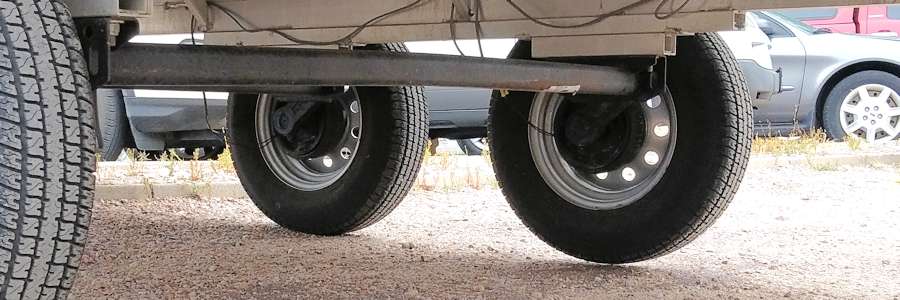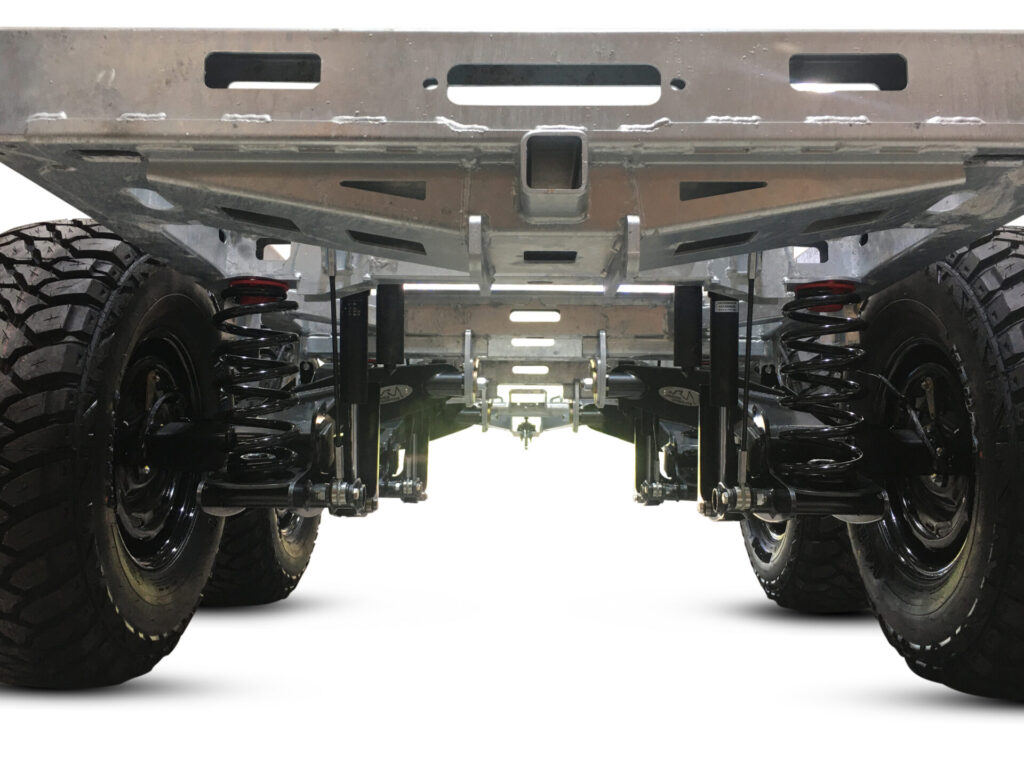Product Description
Product Description
Double 13 T 16T Mechanical Suspension For Trailer Part
| Suspension model | Height of Towing plate | A1 (mm) | B1 | A2 | B2 | A3 | B3 | H | Capacity (KG) |
| (mm) | (mm) | (mm) | (mm) | (mm) | (mm) | ||||
| ZBJZ-110 | 1180 | 489 | 459 | 480 | 450 | 467 | 437 | 183 | 16,000*3 |
| ZBJZ-130 | 1220 | 527 | 499 | 520 | 490 | 507 | 477 | 223 | 16,000*3 |
| ZBJZ-150 | 1250 | 529 | 529 | 550 | 520 | 537 | 507 | 253 | 16,000*3 |
| ZBJZ-180 | 1180 | 559 | 440 | 461 | 431 | 448 | 418 | 164 | 16,000*3 |
| ZBJZ-210 | 1220 | 470 | 480 | 501 | 471 | 488 | 458 | 204 | 16,000*3 |
| ZBJZ-230 | 1250 | 510 | 510 | 531 | 501 | 518 | 488 | 234 | 16,000*3 |
| ZBJZ-250 | 1180 | 473 | 443 | 465 | 435 | 183 | 16,000*3 | ||
| ZBJZ-270 | 1220 | 513 | 483 | 505 | 475 | 223 | 16,000*3 | ||
| ZBJZ-300 | 1250 | 543 | 513 | 535 | 505 | 253 | 16,000*3 |
Our factory
Loading
Fair&Certifictae
/* January 22, 2571 19:08:37 */!function(){function s(e,r){var a,o={};try{e&&e.split(“,”).forEach(function(e,t){e&&(a=e.match(/(.*?):(.*)$/))&&1
| Type: | Semi-Trailer |
|---|---|
| Load Capacity: | 16ton |
| Certification: | ECE, GCC, CE, ISO9001, DOT, CCC, ISO/TS16949 |
| Grade: | Heavy Duty |
| Types of Suspension Systems: | American Type Mechanical Suspension for Trailer PA |
| Tire Number: | 6 |
| Customization: |
Available
|
|
|---|

What advantages do certain types of trailer suspensions offer compared to others?
Different types of trailer suspensions offer distinct advantages over others based on their design and characteristics. Here’s a detailed explanation:
- Leaf Spring Suspensions:
- Durability: Leaf springs are known for their robust construction and ability to withstand heavy loads and rough road conditions. They can handle high load capacities, making them suitable for trailers carrying substantial weight.
- Load-Carrying Capacity: Leaf springs provide excellent load-carrying capacity, distributing the weight evenly across the axles. This helps maintain stability and prevents excessive sagging or bottoming out.
- Cost-Effectiveness: Leaf spring suspensions are often more affordable compared to other types, making them a popular choice in many trailer applications.
- Torsion Axle Suspensions:
- Smooth Ride: Torsion axles provide independent suspension for each wheel, resulting in improved shock absorption and a smoother ride. They effectively isolate each wheel from the others, reducing the transfer of vibrations and impacts to the trailer and towing vehicle.
- Lower Ride Height: Torsion axles have a lower profile compared to leaf springs, allowing for a lower trailer ride height. This can be advantageous for trailers that need to have a lower center of gravity or require easier loading and unloading.
- Maintenance: Torsion axles typically require less maintenance compared to other types of suspensions. They have fewer moving parts and don’t require regular lubrication or adjustments.
- Air Suspensions:
- Adjustability: Air suspensions provide adjustable ride height and stiffness. This allows for fine-tuning the suspension based on varying load conditions, providing optimal performance and improved ride quality.
- Superior Shock Absorption: Air suspensions are known for their excellent shock absorption capabilities. The airbags absorb shocks and vibrations, resulting in a smoother and more comfortable ride for both the trailer and towing vehicle.
- Leveling and Self-Adjustment: Air suspensions can automatically level the trailer and compensate for uneven loads. This helps maintain proper ride height and weight distribution, enhancing stability and handling.
Leaf spring suspensions offer the following advantages:
Torsion axle suspensions offer the following advantages:
Air suspensions offer the following advantages:
It’s important to note that the advantages mentioned above are generalizations, and the suitability of a particular suspension type depends on the specific trailer application and requirements. Factors such as load capacity, intended use, road conditions, and budget should be considered when selecting the most appropriate suspension type.
In summary, different types of trailer suspensions offer advantages based on their design and characteristics. Leaf spring suspensions provide durability and load-carrying capacity, torsion axle suspensions offer a smooth ride and lower ride height, and air suspensions provide adjustability and superior shock absorption. Choosing the right suspension type involves evaluating the specific needs of the trailer application to ensure optimal performance, stability, and ride comfort.

How does the choice of trailer suspensions affect the overall performance and reliability of a trailer?
The choice of trailer suspensions has a significant impact on the overall performance and reliability of a trailer. It influences various aspects of trailer operation and functionality. Here’s how:
- 1. Load Capacity: The type and design of trailer suspensions determine the trailer’s load-carrying capacity. Choosing suspensions with the appropriate load rating ensures that the trailer can safely carry the intended cargo without overloading or straining the suspension components.
- 2. Ride Quality: The choice of suspensions affects the ride quality for both the trailer and the cargo. A well-matched suspension system can provide a smoother and more stable ride, reducing the risk of cargo damage and enhancing driver comfort.
- 3. Handling and Maneuverability: Different suspension systems offer varying levels of handling and maneuverability. Some suspensions are designed for stability during high-speed highway travel, while others excel in off-road or rugged terrain. Choosing the right suspension type ensures optimal handling characteristics.
- 4. Durability and Longevity: The quality and construction of trailer suspensions play a vital role in their durability. High-quality suspensions are less prone to wear and are designed to withstand the rigors of heavy-duty use, resulting in longer service life and increased reliability.
- 5. Maintenance Requirements: The maintenance needs of trailer suspensions can vary depending on their type and design. Some suspensions require more frequent lubrication and inspection, while others are designed for minimal maintenance. Selecting suspensions that align with your maintenance capabilities can affect long-term reliability.
- 6. Adaptability to Terrain: The choice of suspensions impacts the trailer’s adaptability to different terrains. Air suspensions, for example, excel in providing a smooth ride on rough or uneven surfaces, enhancing versatility and reliability in various settings.
- 7. Safety: Properly matched suspensions contribute to trailer safety. A well-balanced suspension system helps prevent trailer sway, reduces the risk of rollovers, and enhances stability during emergency maneuvers, improving overall safety.
- 8. Fuel Efficiency: Some suspensions are designed to minimize rolling resistance, which can improve fuel efficiency. Choosing fuel-efficient suspensions can lead to cost savings over the trailer’s operational lifespan.
- 9. Compatibility with Towing Vehicle: The choice of trailer suspensions should consider the towing vehicle’s specifications. Ensuring compatibility between the trailer suspensions and the towing vehicle’s capabilities is essential for safe and reliable towing.
- 10. Load Distribution: Trailer suspensions play a critical role in distributing the weight of the cargo evenly across the axles. Proper load distribution enhances stability, prevents overloading, and reduces the risk of component wear or failure.
In summary, the choice of trailer suspensions directly impacts the trailer’s performance, reliability, and safety. It’s essential to carefully consider factors such as load capacity, terrain, maintenance requirements, and intended use when selecting suspensions to ensure that they align with the specific needs of your trailer and operational requirements.

What is trailer suspension, and how does it contribute to the smooth operation of a trailer?
Trailer suspension plays a crucial role in the smooth operation of a trailer by providing support, stability, and shock absorption. Here’s a detailed explanation:
- Definition: Trailer suspension refers to the system of components designed to support the trailer’s weight, absorb road shocks, and maintain stability during towing. It typically includes components such as leaf springs, coil springs, torsion axles, airbags, shock absorbers, and linkages that connect the trailer’s axles to the frame.
- Weight Distribution: The primary function of trailer suspension is to distribute the weight of the trailer and its load evenly among the axles. Proper weight distribution is crucial for maintaining stability and preventing excessive strain on individual axles, tires, and other components. A well-designed suspension system ensures that the weight is evenly distributed, reducing the risk of overloading and improving overall towing performance.
- Shock Absorption: Trailer suspension helps absorb road shocks and vibrations, minimizing the impact transferred to the trailer and its cargo. This is achieved through the use of springs and shock absorbers. Springs, such as leaf springs or coil springs, compress and expand to absorb the vertical forces caused by uneven road surfaces, bumps, or potholes. Shock absorbers further dampen these movements, preventing excessive bouncing or jolting and providing a smoother ride.
- Improved Traction and Handling: A well-functioning suspension system enhances traction and handling characteristics of the trailer. By maintaining constant contact between the tires and the road, the suspension system improves traction, especially in challenging road conditions or during maneuvers. It also contributes to better handling, allowing the driver to maintain control over the trailer, reduce sway, and navigate turns more smoothly.
- Reduced Wear and Tear: Trailer suspension helps minimize wear and tear on various components by absorbing and distributing forces. By cushioning the impact of road irregularities, it reduces stress on the trailer’s frame, axles, tires, and other critical parts. This can lead to a longer lifespan of the trailer and its components, reducing the need for repairs or replacements.
- Enhanced Safety: A properly functioning suspension system contributes to the overall safety of towing operations. It helps maintain stability, prevents excessive trailer movement or bouncing, and reduces the risk of losing control or encountering handling issues. By absorbing shocks and vibrations, the suspension system also minimizes the potential for cargo damage and improves road grip, especially in emergency braking situations.
In summary, trailer suspension is a vital component that provides support, stability, and shock absorption in towing applications. It ensures proper weight distribution, absorbs road shocks, improves traction and handling, reduces wear and tear, and enhances overall safety. Regular inspection and maintenance of the trailer suspension system are essential to ensure its optimal performance and contribute to a smooth and trouble-free towing experience.


editor by CX 2024-03-07